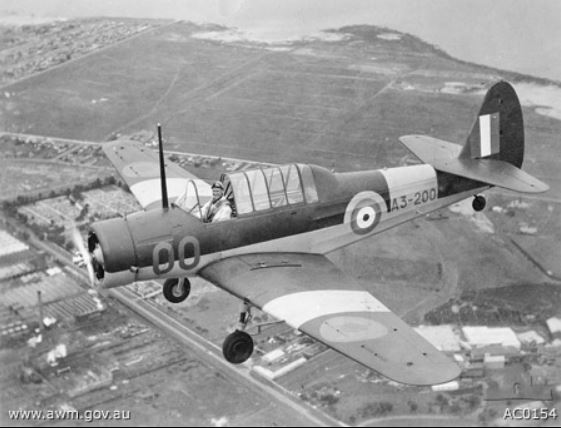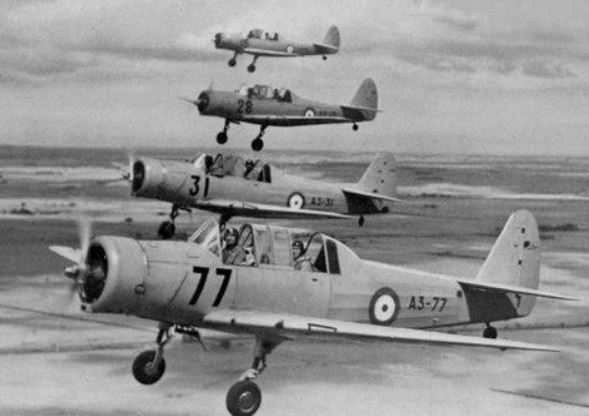Difference between revisions of "CAC Wackett"
From Our Contribution
(→Crew members) |
(→Crew members) |
||
| Line 36: | Line 36: | ||
*Bombs: | *Bombs: | ||
| − | == | + | ==Aircrew== |
| − | ===No. 1 Wireless Air Gunners School RAAF=== | + | ===[[No. 1 Wireless Air Gunners School RAAF]]=== |
* † [[Leslie John (Jock) Powell DFC]] 26 Jun - 11 Dec 1941 | * † [[Leslie John (Jock) Powell DFC]] 26 Jun - 11 Dec 1941 | ||
[[category:Aircraft]] | [[category:Aircraft]] | ||
Latest revision as of 00:36, 20 June 2022
Remarks
The first aircraft type designed in house by the Commonwealth Aircraft Corporation of Australia. It was a tandem seat fixed tailwheel-undercarriage, monoplane aircraft with a fuselage of steel tube and fabric construction and wings and tail made of wood. Early engines were either underpowered or weighed too much until Scarabs were fitted in mid 1940. Supplies of Hamilton propellers, which were being manufactured locally by de Havilland Australia, and the Scarab engines, were erratic during the first half of 1941. The propeller supply problem was not fully resolved until October of that year, so many unflyable aircraft accumulated at the CAC factory at Fisherman's Bend.
Following the outbreak of the Pacific War production was increased to make way for the Boomerang and the last Wackett was delivered to the Royal Australian Air Force on 22 Apr 1942.
General characteristics
- Crew: Two
- Length: 7.92 m
- Wingspan: 11.28 m
- Height: 3.0 m
- Empty weight: 866 kg
- Max takeoff weight: 1,175 kg
- Powerplant: 1 x Warner Scarab 175 Hp
- Maximum speed: 185 km/h
- Range: 684 km
- Service ceiling:
- Armament
- Guns:
- Bombs:
Aircrew
No. 1 Wireless Air Gunners School RAAF
- † Leslie John (Jock) Powell DFC 26 Jun - 11 Dec 1941

